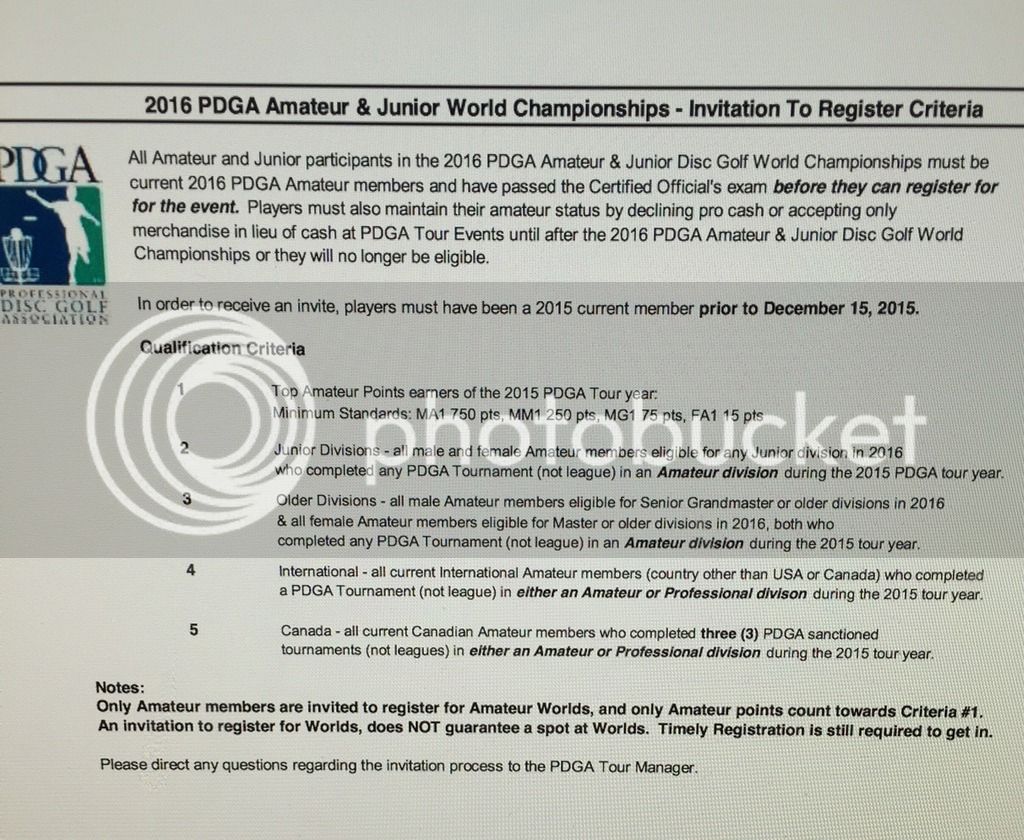Hey guys, just to make a few points clear....I was contacted by a fellow pdga member 2 days ago/Sunday, he informed me that he had been playing with MK since the 90's in PDGA Pro divisions, and knew he had been accepting cash for the past decade. He even took it upon himself to reach out to Brian Graham and tell him what he knew. I had no idea of MK's extensive and decorated Pro history in Europe until 2 days ago. I then began to research pdga events and within a few minutes found this....
Deutsche Disc Meisterschaft B Tier
Sept 22nd-23 2012 Eberswalde, Germany
1st Place Pro Masters $194
http://www.pdga.com/tour/event/13065
European Championship XA Tier
August 28th-31st 2008 Sohnstetten, Germany
2nd Place Pro Masters $425
http://www.pdga.com/tour/event/7609#MPM
21st Berlin Open B Tier
Jun 21st-22nd 2008 Berlin, Germany
4th Place Open $140
http://www.pdga.com/tour/event/7669#MPO
Deutsche Disc Golf Meisterschaften C Tier
May 1st-2nd 2010 Dassel, Germany
1st Place Pro Masters $96
http://www.pdga.com/tour/event/10402
1st Big Hill King C Tier
Oct 9th-10th 2010 Osterschwang, Germany
1st Place Pro Masters $109
http://www.pdga.com/tour/event/10408
4th Ostpark Open B Tier
May 23-34th 2009 Russelsheim, Germany
2nd Place, Pro Masters $212
http://www.pdga.com/tour/event/9148
Albuch Classic 2009 B Tier
Aug 1st-2nd 2009 Sohnstetten, Germany
2nd Place Pro Masters $142
http://www.pdga.com/tour/event/8943
Deutsche Discogolf Meisterschaft B Tier
Sept 27-29th 2013 Wolfenbuttel, Germany
2nd Place Pro Masters $68
http://www.pdga.com/tour/event/14819#MPO
Potsdam Open C Tier
July 26-27 2008 Potsdam, Germany
5th Place Open $87
http://www.pdga.com/tour/event/7786#MPO
European Championships XA Tier
Aug 26-28 2010 Pas-de-Calais, France
4th Place Pro Masters $352
http://www.pdga.com/tour/event/9721
Yes, MK's cash earnings came before he was a current/supporting member of the pdga. HOWEVER, the big question is if the PDGA will determine if their definition of an "Amateur" only applies if the player is a current pdga member.

Will the PDGA honor their Invitation Criteria for Amateur status based on if a player is current, or if the player is truly am Amateur and has/has not accepted cash. In this case the PDGA does not have to do much research, the details are overwhelming.
